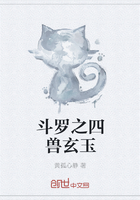Even the impartial spectator feels in. some measure a difference of merit in a man's conduct according as his good intentions have produced or not the results intended by him, although they may only have been defeated by accident. It is indeed common to say, that we are equally obliged to the man who has endeavoured to serve us, as to the man who really has served us; but this saying, "like all other fine speeches, must be understood with a grain of allowance." When all other circumstances are equal, there will always be, even in the best and noblest mind, some difference of affection in favour of the friend who carries out his good intention, as against the friend who fails to do so.
And as the merit of an unsuccessful attempt to do good is diminished by its miscarriage, so is the demerit of an un- successful attempt to do evil. Except in the case of treason, the conception of which is in many countries punished as severely as its commission, the mere design to commit a crime is scarcely ever punished as heavily as its actual perpetration.
In hardly any country is the man, who fires a pistol at his enemy but misses him, punished with death, though there is the same degree of depravity in the criminal design as in the criminal action. "The resentment of mankind, however, runs so high against this crime, their terror for the man who shows himself capable of committing it is so great, that the mere attempt to commit it ought in all countries to be capital. The attempt to commit smaller crimes is almost always punished very lightly, and sometimes is not punished at all. The thief, whose hand has been caught in his neighbour's pocket before he had taken anything out of it, is punished with ignominy only. If he had got time to take away a handkerchief, he would have been put to death." (6) The state of the law only reflects the natural feelings of individuals, who feel less resentment when a man has failed in executing the mischief he intended than when he has actually done them an injury.
For the same reason, a man, who has been saved purely by accident from the commission of a crime he intended, though he is conscious that his real guilt, that of his heart, remains the same, considers himself as less deserving of resentment and punishment; and thus all the sense of his guilt is either diminished or destroyed by the mere fact of fortune having favoured him.
Again, as Fortune influences our moral sentiments by lessening the good or evil, the pleasure or pain, intended by our actions, so does she increase our sense of their merit or demerit, beyond what their mere intention would justify, when they happen to give rise to extraordinary pleasure or pain.
Even when an intention deserves neither praise nor blame, we are conscious of a shade of merit or demerit, according to its agreeable or disagreeable effects on us. We feel a transitory gratitude to the bearer of good tidings, and a transitory resentment to the innocent author of our sorrow. And though we think it barbarous in Tigranes, king of Armenia, to have struck off the head of a man for being the first to announce the approach of an enemy, yet we think it reasonable that, by the custom of all courts,.the officer who first brings the news of a victory should be entitled to considerable preferments.
When the negligence of one man causes damage to another, even though his negligence should be no more than a want of extreme circumspection, the law often insists on compensation. In Rome there was a law which compelled any one who, by reason of his horse taking fright and becoming unmanageable, rode over another man's slave, to compensate the loss. The man himself who thus unintentionally hurts another shows some sense of his own demerit by at least offering an apology. Yet why should he make an apology more than any one else? It is because he is aware that the impartial spectator will feel some sympathy with the natural, but unjust, resentment of the person he has accidentally injured.
But the negligence displayed in any action may be so great as to call not merely for blame and censure, but for actual punishment. For we may so far enter into the resentment felt by one man on account of an unintended injury done to him by another, as to approve of his inflicting a punishment on the offender which would have seemed in excess of the demerit of his offence had no unlucky consequences ensued. For instance, though nothing would appear more shocking to our natural sense of equity than to execute a man merely for having carelessly thrown a stone into the street without hurting anybody, yet, if the stone happened to kill anybody, so great would be the effect of this accident on our moral sentiments that, though the man's folly and inhumanity would not be greater in one case than in the other, we should not consider the severest punishment too hard for him.
Gross negligence is, therefore, in law almost the same as malicious design. Lata culpa prope dolum est .
But our moral sentiments arc considerably affected, not only by the fact of the prosperity or adversity of the person whose conduct we judge, and by the influence of fortune or accident on the result of his intentions, but they are also greatly modified by those two great principles of Custom and Fashion, which have caused so wide a difference of opinion about what is blameable or praiseworthy to prevail in different ages and nations.
For the virtues of the savage state are different from those of the civilized state, the virtues of one profession are different from those of another, and those again which we admire in youth are different from those we look for in old age.
This fact is due to the influence of custom, or of fashion, which is a species of custom, as the custom of persons of high rank or character.
For both these affect our moral sentiments, albeit in a less degree, yet in exactly the same way that they affect our ideas and feelings about beauty in all objects submitted to our observation.















